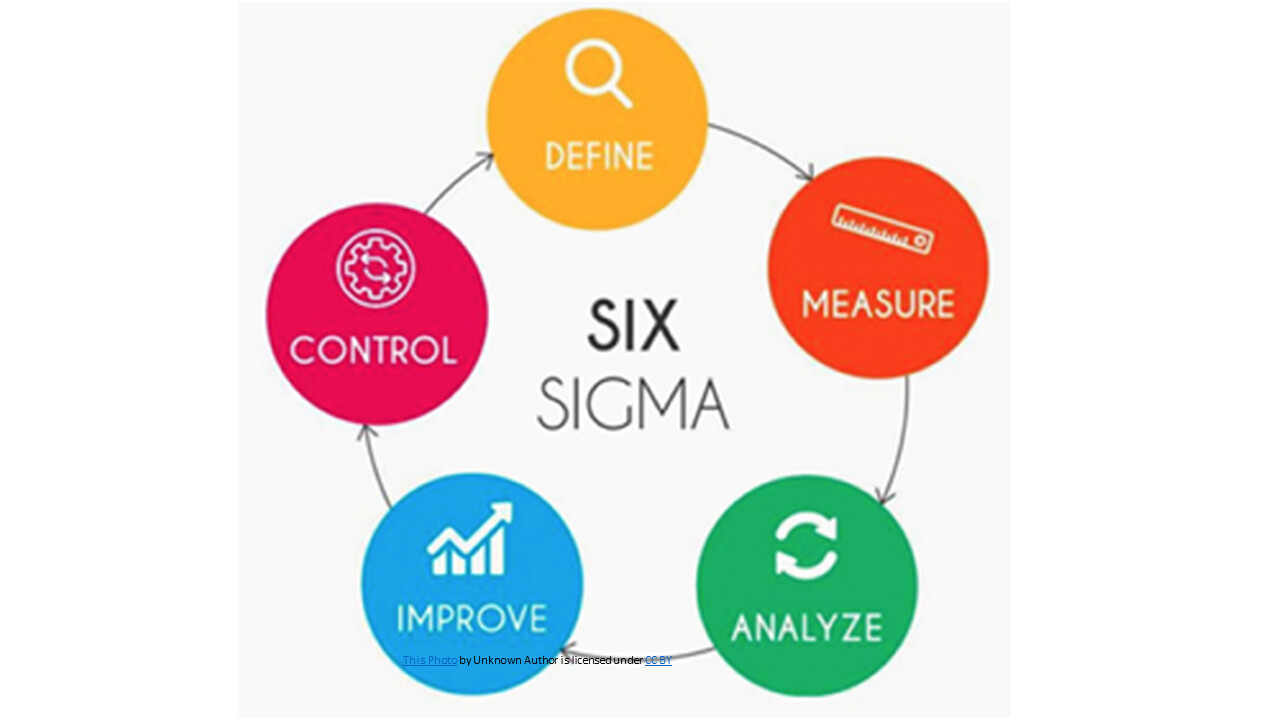
Lean Six Sigma
Course Overview
The last couple of decades small, mid-sized and Fortune 500 companies have embraced Six Sigma to generate more profit and greater savings. So what is Six Sigma?
Six Sigma is a data-driven approach for eliminating defects and waste in any business process. You can compare Six Sigma with turning on your water faucet and experiencing the flow of clean, clear water. Reliable systems are in place to purify, treat and pressure the water through the faucet. That is what Six Sigma does to business: treats the processes in business so that they deliver their intended result.
What is "Sigma"? The word is a statistical term that measures how far a given process deviates from perfection. Sigma is a way to measure quality and performance. The central idea behind Six Sigma is that if you can measure how many "defects" you have in a process, you can systematically figure out how to eliminate them and get as close to "zero defects" as possible.
The Lean Six Sigma Course will give participants an overview of the Six Sigma methodology, and some of the tools required to deploy Six Sigma in their own organizations.
You will learn to:
- Develop a 360 degree view of Six Sigma and how it can be implemented in any organization.
- Identify the fundamentals of lean manufacturing, lean enterprise and lean principles.
- Describe the key dimensions of quality – product features and freedom from deficiencies
- Develop attributes and value according to the Kano Model
- Understand how products and services that have the right features and are free from deficiencies can promote customer satisfaction and attract and retain new customers.
- Describe what is required to regulate a process
- Give examples of how poor quality affects operating expenses in the areas of appraisal/inspection costs, internal failure costs and external failure costs
- Using basic techniques such as DMAIC and how to identify Six Sigma Projects
- Use specific criteria to evaluate a project
- Discover root causes of a problem
- Design and install new controls to hold the gains and to prevent the problem from returning.
Course Materials and Services Include:
- Self-paced Learning – 24/7
- Pre-Test and Post-Test
- Comprehensive Study Guide
- Training Exercises and Quizzes
- Quick Reference Materials
- Certificate of Course Completion (Upon completion with a Post-Test passing score of 70, and above)
- Instructor Interaction via Email
Course Length – on-line:
The online course is self-paced. The trainee can spend as much time as desired on each slide and can stop and start the training at will.
Estimated course training time: 6 hours.
(Time estimate considers time estimate for trainee to complete interactive training exercises.
Classroom training is available for this course.
Lean Six Sigma Course Outline:
|
Getting Started
Understanding Lean
Liker’s Toyota Way
The TPS House
The Five Principles of Lean Business
Module Six: (Value)
|
The Second Improvement Concept (Waste)
The Third Improvement Concept (Variation)
The Fourth Improvement Concept (Complexity)
The Fifth Improvement Concept (Continuous Improvement)
The Improvement Toolkit
Wrapping Up
|
